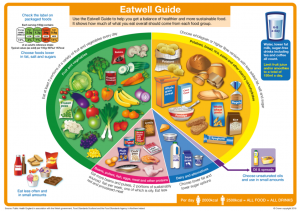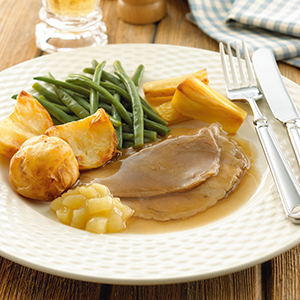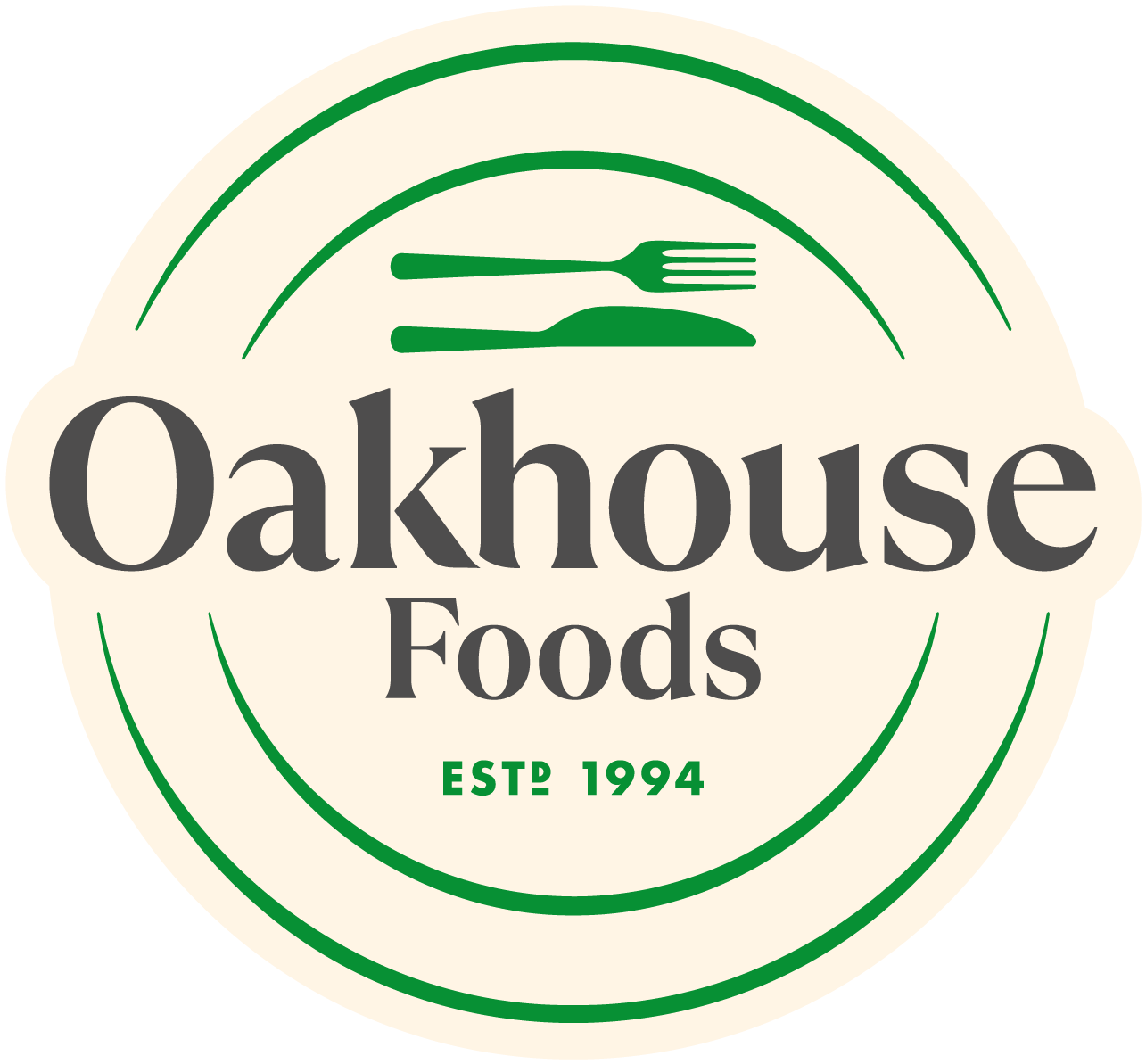Eating well for good health and staying fit are important no matter what your age.
Eating well means you’re more likely to feel healthier, stay active for longer and protect yourself against illness. It’s never too late to start eating healthily, and a healthy diet doesn’t have to be boring or expensive.
It also doesn’t mean going without your favourite treats, although it may mean eating them less often or in smaller portions.
As you grow older, your metabolism slows down, so you need fewer calories than before. Your body also needs more of certain nutrients. That means it’s more important than ever to choose foods that give you the best nutritional value.
Oakhouse Foods insist on wholesome ingredients and because all our dishes are freshly frozen they are full of goodness, so you can eat our meals with confidence.




What Foods Make Up A Healthy Diet?
Eating well means enjoying your food and having plenty of variety in your diet so you get all the nutrients you need and maintain a healthy weight. The UK Government’s Eatwell Guide shows the different types of foods and drinks we should consume – and in what proportions – to have a healthy, balanced diet.
Fruit and Vegetables
Fruit and vegetables contain a very wide range of important vitamins, minerals and fibre. Research shows that people who eat plenty of fruit and vegetables are less likely to develop cancer and heart disease. The Food Standards Agency recommends we eat 5 portions of fruit and vegetables a day. This might be easier than you think. Make sure you eat a variety of foods to get all the nutrients you need. Your plate should look like a rainbow—bright, coloured foods are always the best choice! These can be fresh, frozen or canned. A portion is roughly the amount you can fit in the palm of your hand, for example three apricots or an apple. To help you reach your five portions, why not try: • Breakfast – a glass of juice or a heaped tablespoon of dried or tinned fruit (such as prunes or apricots or fresh fruit with your cereal, porridge or toast . • Lunch – soup or three heaped tablespoons of baked beans or a side salad • Dinner – many of Oakhouse Foods meals contain vegetables or you can try one of our vegetables sides. A portion of vegetables equates to three heaped tablespoons of vegetables like peas or Broccoli, Baby Carrots or Carrot, Swede & Horseradish Mash • Snacks – prunes or apricots or try some of our tinned fruit
Protein
Protein contains amino acids, which make up the chemicals your brain needs to regulate your thoughts and feelings. It also helps control your blood sugar levels. Protein contains minerals and vitamins which help maintain and repair your body after an injury or surgery. Protein is in: lean meat, fish, eggs, cheese, legumes (peas, beans and lentils), nuts and seeds. You don’t need to eat meat every day – try well-cooked eggs or beans. Oily fish are rich in vitamin D and a great way to get omega-3 into your diet to reduce your risk of heart disease. Try to eat fish twice a week, with one portion being oily fish such as Salmon in Watercress or a mini meal option such as Salmon in Tomato Sauce or Tinned Tuna.
Potatoes, Bread, Rice, Pasta And Other Starchy Carbohydrates
These foods give you energy and a range of nutrients. Try to eat wholegrain versions such as wholegrain bread or wholemeal pasta. These are good sources of B vitamins, minerals and fibre which helps prevent constipation. Why not try: • Breakfast – wholegrain cereal or porridge or wholemeal toast with tinned fruit. • Lunch – a brown bread sandwich • Dinner – stews , casseroles or curries with potatoes or couscous and rice.Dairy And Alternatives
Foods containing dairy are high in protein and vitamins and are a good source of calcium, which helps to keep bones strong. Try to choose lower-fat versions, such as semi-skimmed milk and half-fat cheese. Why not try: • Breakfast – a glass of low-fat milk or a tub of low-fat yoghurt • Lunch – low-fat cheese on toast or a yoghurt-based dressing for a salad • Dinner – add grated low fat cheese to soups, salad or pasta • Dessert – rice puddingOils And Spreads
We do need some fat in our diets, but only a small portion. The better fats are found in the oil or spread you use. Eating too much food high in saturated fat can increase the risk of heart disease, whilst food containing unsaturated fat can help reduce your risk. Other fats, such as omega 3s can protect against heart disease. Read more about our blog on eating well to have a healthy heart.Low Calorie Meals
Perhaps you might want to lose a little weight as part of a healthy diet. Why not try one of our low fat or low calorie meals or a warming soup: Or you can try one of our low calorie dessertsTry Our Mini Meals To Lose Weight
If you are trying to lose weight you may wish to try one of our mini meals rather than normal size meals. You can hear how one of our customers lost weight by eating our mini meals.
